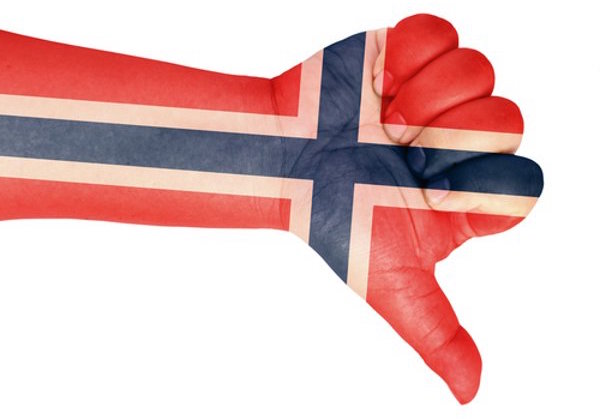For months now it's been popular to consider the oil crash contained, that is to suggest that it has no repercussions outside the energy industry. However, equity investors should take note that one of the single largest buyers of equities in the world may now become a net seller simply due to the oil price crash.

Due to its massive North Sea oil reserves (the busiest drilling site on the planet), Norway has prospered greatly over the past few decades. This has allowed the nation, despite its relatively small population, to build one of the largest sovereign wealth funds in the world. So large, in fact, that the fund now owns 1% of all the equities around the world (including nearly 2% of European equities, making it the largest holder there).
The oil crash has not been kind to Norway. And in order to maintain its spending to prop up it flagging economy, some believe the country may be forced to dip into its sovereign wealth fund. In other words, the fund has gone from being one of the largest buyers of equities in the world to possibly a net seller. Bloomberg reports:
If the government has to withdraw money from its $875 billion sovereign wealth fund, it will be a historical step. It's either that, or heavily rein in fiscal spending at a time when the country needs it most. The state's spending could start to outstrip income from oil, which it pours into its wealth fund for future generations.
To his credit, Marc Faber outlined this possibility at the Barron's Roundtable back in January:
…sovereign wealth funds rose to $6.8 trillion as of September 2014, from $3.2 trillion in 2007. Of that growth, 59% came from oil, gas, and related revenue. As oil prices fall, what will happen to the growth of sovereign wealth funds, which have been buying financial assets around the world? Their funding is going to evaporate, and they might be forced to sell.
Clearly, there are larger repercussions of the oil crash than many currently believe. One of these is that oil-dependent nations, some of the most powerful players in the markets, have already been forced to halt their buying of equities. Considering their buying has been one of the major factors behind the powerful bull market over the past few years this is nothing to sneeze at. What's more, these massive funds may even be forced into becoming net sellers.



